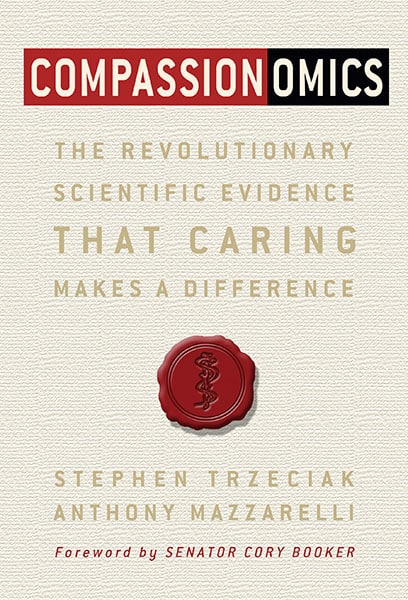The First 90 Days – Sign Up here to begin this free course
The First 90 Days

Years ago, I met a physician colleague for lunch. She wanted my career advice and invited me to join her at one of our favorite restaurants. I am by no means a career advisor, but my colleague is a good person and whatever the reason for us to get together, I’m all in! I was honored she thought I could offer her any words of wisdom or meaningful advice. Besides, it had been a while since we hung out and had a chance to update one another about our lives. So, when I received her text message, “Are you available to meet for lunch on Friday?”, I couldn’t help myself and sent a reply containing every positive affirming emoji. Translation, “Y-E-S!”
Throughout lunch, we talked about anything, and we ate everything. It felt good to connect in a stress-free environment, with our only distraction being the waiter, who was politely checking in from time to time to assess our needs. I did my best to answer truthfully, all of my colleague’s ‘What do I do next with my career’ questions, keeping her goals in mind.
Just as our lunch outing was wrapping up (i.e., my fork was piercing the last bite of strawberry cheesecake), she asked, “What are your thoughts about feedback? My leader recently gave me some feedback.” She didn’t tell me the specifics of what her leader said or how she felt about the conversation. I sensed, however, that whatever was said to her was hurtful and that she was uncomfortable bringing up the topic. I asked her, “Did your leader’s feedback make you feel small?”
“Yeah, it did,” she replied softly.
“Then that’s not feedback, that’s criticism,” I said.
“But my leader told me it was feedback,” she replied.
“I know, and I’m so sorry you had to experience that kind of critique. I understand that feeling of thinking that you are small when your leader criticizes your work. It’s a real kick in the teeth. But you’re not small, and your leader totally sucked at giving you feedback.”
My colleague leaned back in her chair and started laughing. “I’ve never thought of it in that way. I thought I was supposed to…” and she went on to share what was running through her mind during ‘the feedback’ experience with her leader.
It wasn’t my intent to make her laugh. (Just between the two of us, her reaction surprised me because I wasn’t trying to land a joke and I know my response could only earn a laugh if I paid for one). Nor was it my intent to try to make her feel better. I wanted her to know that I heard her. I wanted her to know that even in a busy restaurant surrounded by noise, I understood her perspective. I wanted her to know that I was attentive to her verbal and non-verbal emotional signals. I wanted her to know that I cared.
When people feel listened to and understood at a deep emotional level, and when that understanding is acknowledged or communicated, people feel affirmed and validated.
If we do not acknowledge the emotion, we may feel empathy, but the other person may not know that we do. From the standpoint of social and emotional intelligence, leading with empathy involves at least three concepts:
- Listening for another’s emotional state and having a sensitivity for the other person’s feelings
- Understanding what that person might be feeling or experiencing at this moment, both cognitively and emotionally, and
- Acknowledging our perception of the “internal frame of reference of another” and our “sense of similarity of feelings.”
Practicing empathy enhances our relationships and it is important to express (verbally, or through our body language, tone, or actions) that we understand, acknowledge, and share the experience and feelings of the other person. Empathic physician leaders can sense others feelings and perspectives and show sensitivity to that perspective in their relationship with the other person.
The ability to empathize is dependent first on our strengths to feel and to identify our own feelings and emotions. A prerequisite for leading with empathy is emotional self-awareness. Emotional fluency is essential not only for self-management but also for managing your relationships with others. (If you want an introduction or a refresher to emotional literacy, refer to (Lesson 1 – Build your Emotional Vocabulary).
Leading with empathy is a choice; a learned and enlightened skill that can be practiced and honed over time. Feedback in the form of criticism is reductionist and a negative multiplier. The critical Leader is a poor listener, and under the misapprehension that creating fear and/or self-disesteem will result in achieving a positive desired behavior. Even the most socially aware physician leaders have off-days or situations they can’t read. The best way to test your accuracy at hearing an emotional signal is to simply ask if what you’re observing in people or situations is actually what’s occurring. Remember, when I asked my colleague if the conversation with her leader made her feel small? That was me testing my observation of what I thought I heard. She could have rejected my view or restated how she felt using her own words. My question was an attempt to identify her underlying concern and to acknowledge that her feeling is normal in order to close the gap on what she needed from me at that moment. As Brené Brown explains in her book, dare to lead, “Empathy is connecting to the feeling under the experience. Empathy fuels connection.”
Testing your observations for accuracy will ultimately give you a keener understanding of social situations, and help you pick up on cues that might otherwise fly under the radar. If you don’t ask, you’ll never be sure. Listen for and tune into the emotions of others as you interact with them. It will help you get a more accurate view of your surroundings and the person before you. When you put yourself in another’s place and take that perspective into account, you can walk a mile in the other doctor’s whitecoat. As we get to know others on an emotional level, we recognize the similarities between our feelings and theirs. Then we can begin to understand their emotional needs are similar to ours. When we realize we have similar emotional needs, we are better able to relate to others. We are able to lead with empathy.
Tip #8 – Acknowledge the emotions you observe without judgment.
Strategy #8 – Listen for the emotions that accompany an expressed statement. Paraphrase, repeat back, and clarify what you think you’ve heard to test the accuracy of your observations.
Teresa Dean Malcolm, MD, FACOG, MBA, CPE, CPXP, is zealous in her belief that an exceptional experience in clinical care, the human(e) experience, is achievable through meaningful and authentic relationships with others. She has served in executive positions, integrating people with process and purpose, and successfully aligning the ideas of the team with a compelling vision. Her coaching philosophy, The Malcolm Method, is rooted in trust and supportive accountability. Through thought-provoking conversations, she strives to deepen the awareness of her physician clients and further their actions, thereby helping them to thrive as they lead. Dr. Malcolm (known to her friends and family as Terri) is a loving wife to her husband, Nate. Together they have three charming and athletic boys, Nathaniel, and twins, Roman and Colton.



